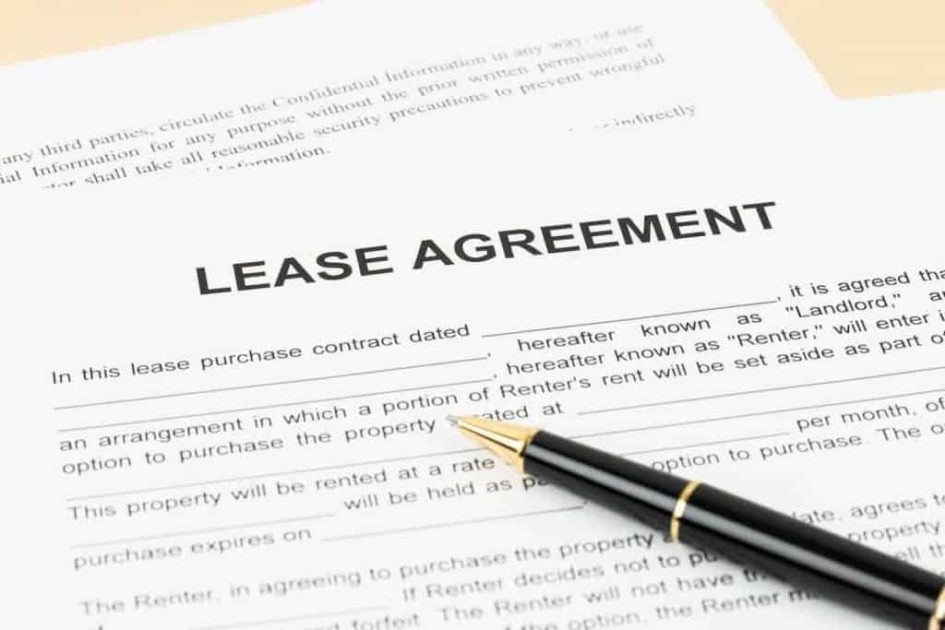Our residential Lease Agreements are easy to read and understand
What to expect in your easy-to-read iLoveBmore Lease Agreement (Maryland)
Renting a new house or apartment in Maryland is an exciting moment, whether you’re moving into your own place for the first time, acquiring a place to stay for one of the state’s many colleges, or simply changing your living circumstances. When you consider the expense of the rent, moving all of your belongings in, unpacking, and finding a compatible roommate, it’s also a potentially nerve-wracking challenge. The lease, on the other hand, is the sole constant in when renting. Our rental units in Maryland are often whole houses, buildings with multiple units or whole complexes or buildings and are separately rented or leased out. Houses and apartments are rented on a weekly, monthly or annual basis rather than being bought completely.
A lease is a legally binding document that lays out the conditions that the landlord or property owner and you, the tenant, have agreed to. As the property management company, iLoveBmore simply enforces the terms of that agreement between those two parties. The lease can range in length from one to many pages, but in general, it specifies how long you’ll be renting the apartment (six months, one year, two years, etc.) and how much rent you’ll pay each month (and on what day). Security deposits, first-and last-months’ rent requirements, pet rules, who pays for what utilities, and who is liable for upkeep and repairs are all common issues. Overnight guests, pool privileges, and parking lot access could all be mentioned.
Our lease benefits both the private landlord and the renter. For starters, it’s a detailed, written record that can be used as a reference if there are any questions about the apartment’s terms. It provides security to the landlord by ensuring that he will have a source of income each month and that he will get it at a certain time. It gives the tenant a fixed rent rate as well as a formal description of the renter’s rights in the event of a disagreement.
Let’s take a look at what leases include, such as basic rules and restrictions, roommates, pets, and the dilemma of what to do if you need to break a lease.
iLoveBmore Leases in General
Your rights, responsibilities, and those of the landlord are all spelled out in a lease. The financial details are the most crucial. The lease will detail how much rent you must pay each month, as well as late payment penalties, whether certain utilities are covered by the tenant or the landlord, and move-in costs such as a one-time security deposit. When a renter moves out, the security deposit is usually refunded to him or her, or at least the majority of it. This is a fund that your landlord will use to repair any damage that occurs during your stay. If you accidentally punch a hole in the wall that costs $100 to repair, your $300 security deposit will be reduced to $200.
A lease must be reasonable (for example, quiet hours should not begin at 3 p.m.), and a decent, competent landlord will be willing to work out a compromise. Read your lease carefully and don’t be rushed by a landlord or leasing agency. Request that a section of your lease be altered if you don’t understand something and need it clarified in writing. If you have a disagreement, request that the landlord work with you. Make sure that both the tenant and the landlord initial and date any modifications, because once you sign the lease at the end, you are agreeing to the conditions of the entire lease.
While a lease specifies everyone who lives in the flat and requires all tenants to sign on the dotted line, it does not address internal roommate issues. Leasing time is an excellent time to draft a roommate contract that specifies how bills, responsibilities, and upkeep will be shared. Make sure you mention everyone who lives there; if you bring someone in after the lease has been signed, you risk being evicted (and losing your deposit).
In an apartment, what about pets, pet fees, and pet rules? Continue reading.
Including Your Pet on an Apartment Lease
If you own a pet, ask your landlord if it’s all right to have one in the unit.
Pet rules may be subject to negotiation. Say, for example, the landlord has a 30-pound (13.6-kilogram) weight limit on pets, and your dog weights 35 pounds (15.9 kilograms). That just means they don’t want large, potentially messy dogs — you can probably compromise on that. And if you plan to get a pet later on, tell your landlord, as you may need to pay a fee upon move-in or renegotiate the lease upon the animal’s arrival.
If there isn’t anything in the lease agreement laying out pet rules or possible fees, ask your landlord, and get any important information in writing. Whatever you do, don’t try to sneak in a pet without telling your landlord. Sure, you’ll avoid paying the deposit, but if you get caught, that’s a violation of the lease terms (as you claimed on the lease to not keep pets) which could lead to eviction.
Early Termination of a Lease
What if you need to move out, but your lease isn’t up yet? It’s not the end of the world.
A lease is term-specific, usually lasting one year. That means that you have agreed to live in the apartment for that period of time. If you need to move away for any reason, you may be held to the terms of your lease. A landlord can make you buy out your lease, for example. Let’s say you have four months left on your lease, and you pay $1,000 in monthly rent. The landlord would then let you out if you paid the $4,000. Some leases have a “buyout clause,” with a fixed, but likely high number, to void the lease. Landlords have also been known to let tenants out of a lease by holding onto the security deposit. In any event, check your lease agreement when you move in, so you know what you’d be facing if the time ever comes.
If the terms of the lease are violated, it often renders the lease invalid, allowing you to move out. A common version of this scenario is if a landlord repeatedly fails to make the repairs of the sort promised in the lease. Provided you can show a written record of repeated requests, followed by a reasonable amount of time for the landlord to make the repairs, you may be off the hook. Or if the city denies power or water to the complex due to the fault of the landlord, that’s another case of failed promises.
If that lease is airtight, and neither party did anything wrong, you may be able to sub-lease the apartment to a new tenant. (Some states, however, don’t allow this.)
A lease can also be terminated if the tenant fails to hold up his end of the agreement. To avoid that situation, pay your rent on time, and always keep things clean and civil.
In the Army
And if you join the military, a landlord must let you out of your lease by law, although in some states landlords are entitled to a small fee.
iLoveBmore Leases FAQ
What does it mean to lease an apartment or house?
A lease is a legally binding contract, laying out the rules agreed upon between the landlord or property owner and you, the tenant.
What is a simple lease?
A lease can be from one to many pages, but in general, it defines exactly how long you’ll be renting the apartment (six months, one year, two years and so on) and exactly how much money you’ll pay in rent each month (and on what day).
What is the difference between renting a whole house versus renting an apartment?
When renting one of our apartments, you should expect that common utilities will be taken care of by the owner or property manager. These include things such as water, landscaping, snow removal and shared washer and dryer if available.
When renting one of our houses, you will be responsible for the upkeep of the property. You’ll usually be responsible for the water bill, cutting the grass and removing snow from the walkways and sidewalk.
All units are provided with a city issued trash receptical. When renting a unit in a multi-unit building, that trash can will be shared with all residents, which those renting single family homes will have their own.
Is an apartment lease a contract?
A lease contractually ensures that the landlord will have a source of revenue each month and will receive it at a specific time.
How can I get out of a lease?
If you need to move away for any reason, you may be held to the terms of your lease. A landlord can make you buy out your lease, for example. Landlords have also been known to let tenants out of a lease by holding onto the security deposit. In any event, check your lease agreement when you move in, so you know what you’d be facing if the time ever comes.


